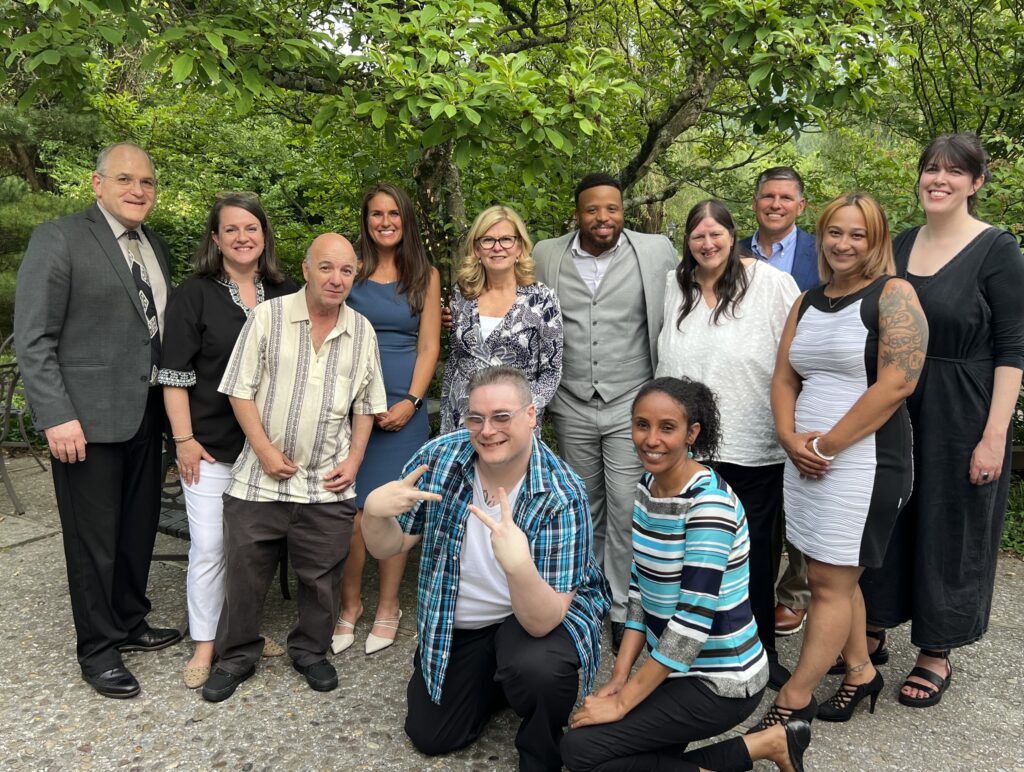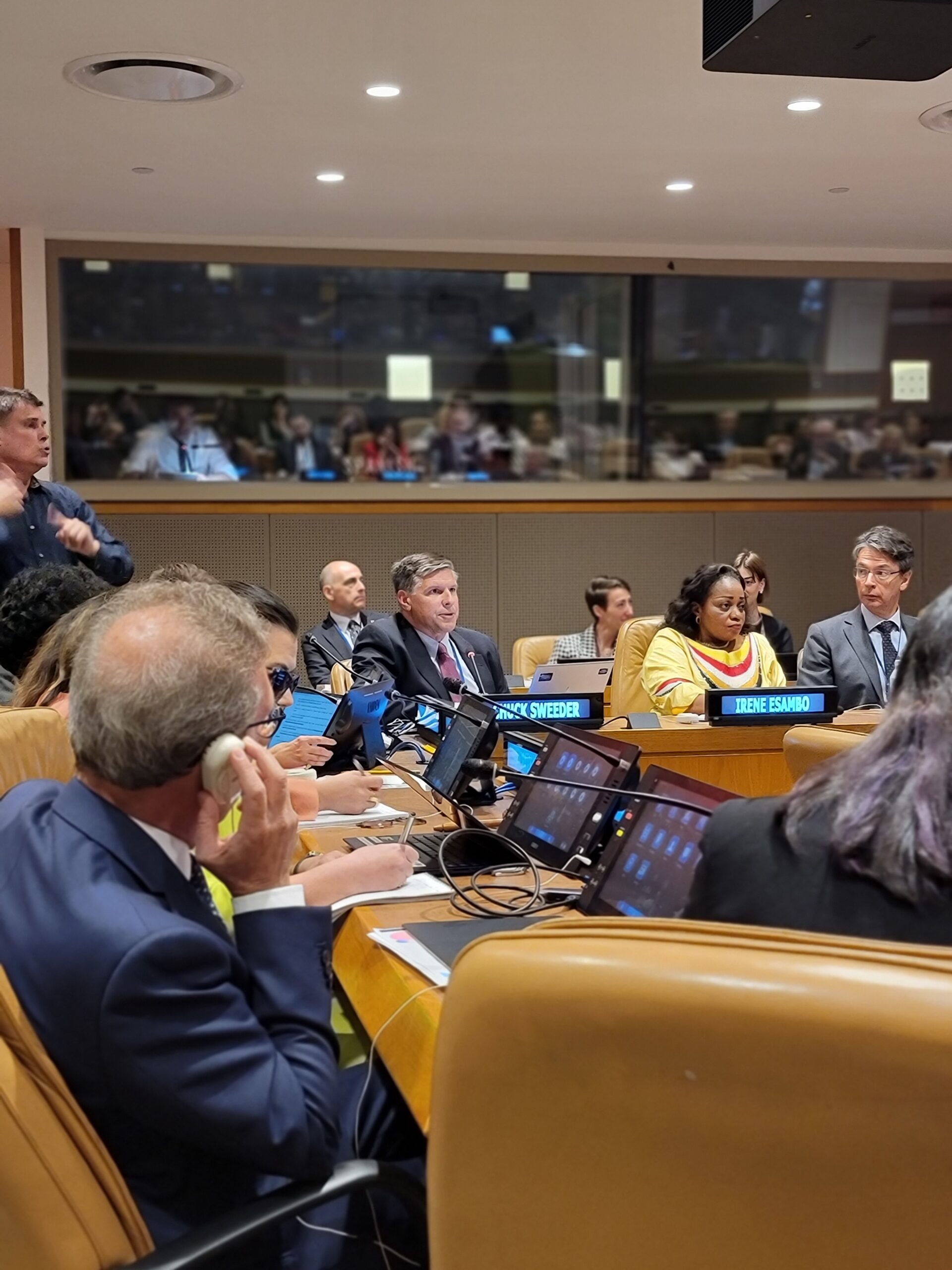 How is individual choice and decision-making supported well, and how do we shift mindsets around the perceived capacity of people with intellectual and developmental disability?
How is individual choice and decision-making supported well, and how do we shift mindsets around the perceived capacity of people with intellectual and developmental disability?
That’s one of the questions posed by Chuck Sweeder, President and CEO of Keystone Human Services, during the 16th Session of the United Nations Conference of States Parties (COSP) to the Convention on the Rights of Persons with Disabilities (CRPD) on June 14, 2023. Chuck spoke on a panel that was addressing the topic of health equity. The session, titled, “Ensuring Accessibility and Inclusion for Persons with Disabilities in Health and Support Services,” included interventions also from Alessandra Locatelli, Italian Minister for Disabilities; Johannes Rauch, Austrian Minister of Social Affairs; Professor Filippo Ghelma, researcher at the Department of Health Services, University of Milan, and Medical Director of the Azienda Sociosanitaria Territoriale Santi Paolo e Carlo of Milan – University Pole; Konrad Swietek, Austrian Ministry for Social Affairs, Health, Care, and Consumer Protection; Dominque Kantor, Self-Advocate and Validator for Fundacion Visibilia, Member Representative of Inclusion International; and Marie Soledad Cisterna Reyes, Special Envoy of the UN Secretary General on Disability and Accessibility.
 This question aligns with several around the CRPD and legal capacity posed by Connie Laurin-Bowie days later at KHS’s June Summit: What does the person want and what’s our role in helping the person achieve what they want in their lives? Where they live, how they get support, what do they do on a day-to-day basis, if they volunteer, what their likes are, what they don’t like?
This question aligns with several around the CRPD and legal capacity posed by Connie Laurin-Bowie days later at KHS’s June Summit: What does the person want and what’s our role in helping the person achieve what they want in their lives? Where they live, how they get support, what do they do on a day-to-day basis, if they volunteer, what their likes are, what they don’t like?
The work to answer these questions looks to the CRPD and the Listen Include Respect global guidelines. It involves a mindset shift, one that places people with disability as the central actors and experts in their own lives, rather than passive characters whose decisions are made for them.
“We can impact how we see people and define roles and expectations,” said Genevieve Fitzgibbon, President and CEO of Keystone Human Services International, a subsidiary of Keystone Human Services, during another panel discussion at COSP focused on Improving Independent Living: Improving [Direct] Support Jobs, alongside Donna Martin, Senior Director of State Partnerships and Innovation for ANCOR; Javier Guemes, Vice President of EASPD; Stephanie Gotlib from Inclusion International; and Olga Martinez de Briones, Policy Officer for the European Commission. Partnering closely with people with disability is a critical piece.
Chuck pointed to the “My Patient Profile” document used within Keystone Human Services’ Adult Community Autism Program (ACAP) in Pennsylvania as an example of one way for adults with autism to control their own lives within the healthcare community. Through this document, updated regularly, people specify their preferences, including:
- Whether they will advocate for themselves
- What makes them comfortable or uncomfortable during a visit and how that might be expressed
- How healthcare professionals can best communicate with them during the visit
- Adaptations to the physical environment
People with disability are the experts in their own lives, and as mindsets shift to recognize and respect that expertise, we as a human service provider must ask ourselves how we provide good support that reflects the will and preference of each person and dismantles barriers to inclusion and full access to human rights. The key lies in listening to, including, and respecting people with disability to learn together.
“When I found my voice,” said Jordan Beasom, “I was able to let them know that I can do this, this, and this if it’s explained well and broken down into easy accomplishments.”
These questions and challenges are not limited to where Keystone works in the U.S. These are human rights issues for all people, and our deep dive into the Listen Include Respect guidelines is part of the global advocacy movement at the United Nations and elsewhere. This work is operational.
“In my job as a Direct Support Professional,” said April Prather at the June Summit, “I have found it frustrating that I spend most of my time just doing the next thing and the next thing and the next thing, and sometimes lose the focus on the people who choose our services and their wishes, their needs, their dreams. So [Keystone Human Services’ Listen Include Respect initiative] is a chance to intentionally start thinking about the things that are important because that’s why we’re there.”
To learn more and join Keystone Human Services in our Listen Include Respect initiative, contact us at [email protected].


 How is individual choice and decision-making supported well, and how do we shift mindsets around the perceived capacity of people with intellectual and developmental disability?
How is individual choice and decision-making supported well, and how do we shift mindsets around the perceived capacity of people with intellectual and developmental disability? This question aligns with several around the CRPD and legal capacity posed by Connie Laurin-Bowie days later at KHS’s
This question aligns with several around the CRPD and legal capacity posed by Connie Laurin-Bowie days later at KHS’s